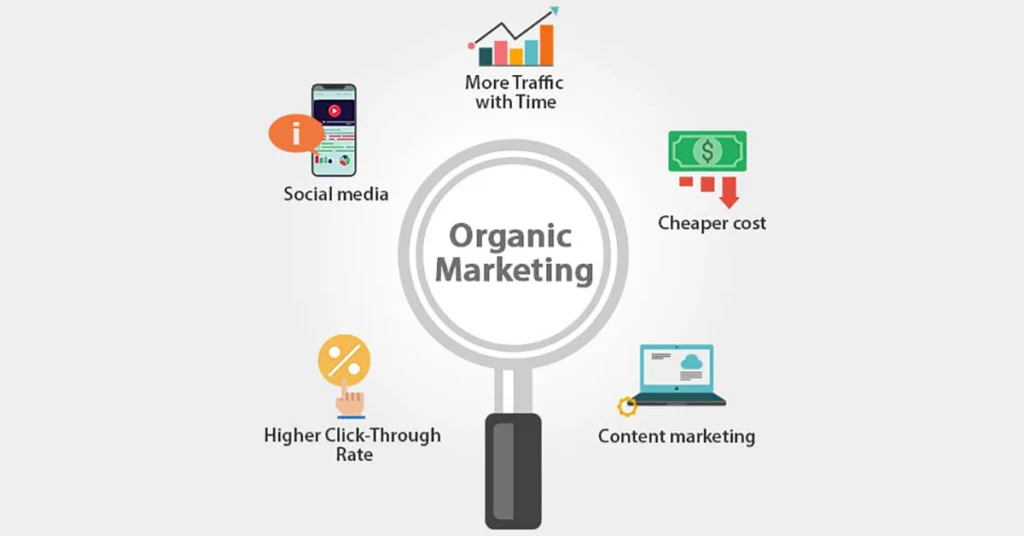


Of course! The term “organic marketing” describes the utilisation of free and natural techniques to advertise a good, service, or brand. In contrast to paid advertising, organic marketing depends on producing content that is valuable, establishing connections, and interacting with your target market in order to draw attention. Key elements of organic marketing include the following:
Marketing using Content:
Blogging: Consistently releasing informative, high-quality blog entries can help you build your authority and draw in natural search traffic.
films: Producing interesting and educational films is a great way to establish a connection with your viewers. YouTube and other similar platforms are great for organic reach.
Marketing on social media:
Maintaining a Consistent Presence: Sharing pertinent material on social media sites on a regular basis fosters the development of a brand community.
Engagement: You may increase your organic reach on social media by replying to messages and comments and by actively participating in conversations.
Optimization of Search Engines (SEO):
Keyword Optimization: You may raise your search engine rankings by using important keywords in the text of your blog entries, social media postings, and website.
High-quality backlinks: Getting backlinks from reliable websites might have a favourable effect on your search engine optimisation.
Electronic Mail Promotion:
Newsletter Campaigns: You may encourage the natural development of your client connections by providing your subscribers with informative articles, exclusive offers, and updates.
Segmentation: Email messages are more successful when they are tailored to the interests and behaviour of the recipient.
Influencer advertising:
Partnerships: Working with influencers that support your business will help you naturally promote your goods and services to a wider audience.
Referral and word-of-mouth initiatives:
Motivate pleased clients to tell others about their experiences. One effective organic marketing strategy is still word-of-mouth advertising.
Building Communities:
Creating and sustaining a community around your business or sector can promote organic development via mutual interests and word-of-mouth.
Online Testimonials & Reviews:
Urge pleased clients to post feedback on review sites particular to their sector or on sites like Yelp or Google. Positive evaluations can increase trustworthiness and draw in new clients.
Client Interaction:
Using polls, comments, and conversations to actively engage your audience may foster a sense of belonging and devotion.
Patience and consistency:
Results from organic marketing take time to appear. Forging a lasting internet presence requires patience and consistency in your efforts.
To sum up, organic marketing is all about creating real relationships with your audience via natural means like social media, SEO, content, and other techniques. Long-term success and client loyalty may result from organic marketing by offering value and building connections.
Elon Musk’s $97 Billion Bid for OpenAI: A Power Move Rejected by Sam Altman
The Power of ‘i’: The Legacy and Meaning Behind Apple’s Iconic Branding
Zomato’s Big Move: Rebranding, Growth, and Challenges Ahead
DeepSeek: China’s AI Powerhouse – Innovation, Impact, and Controversies
Union Budget 2025: Tax Cuts, Growth Initiatives, and Fiscal Prudence
Byju’s shareholders vote to remove founder Raveendran and restructure the board; the business declares the EGM void.
Leave a Reply